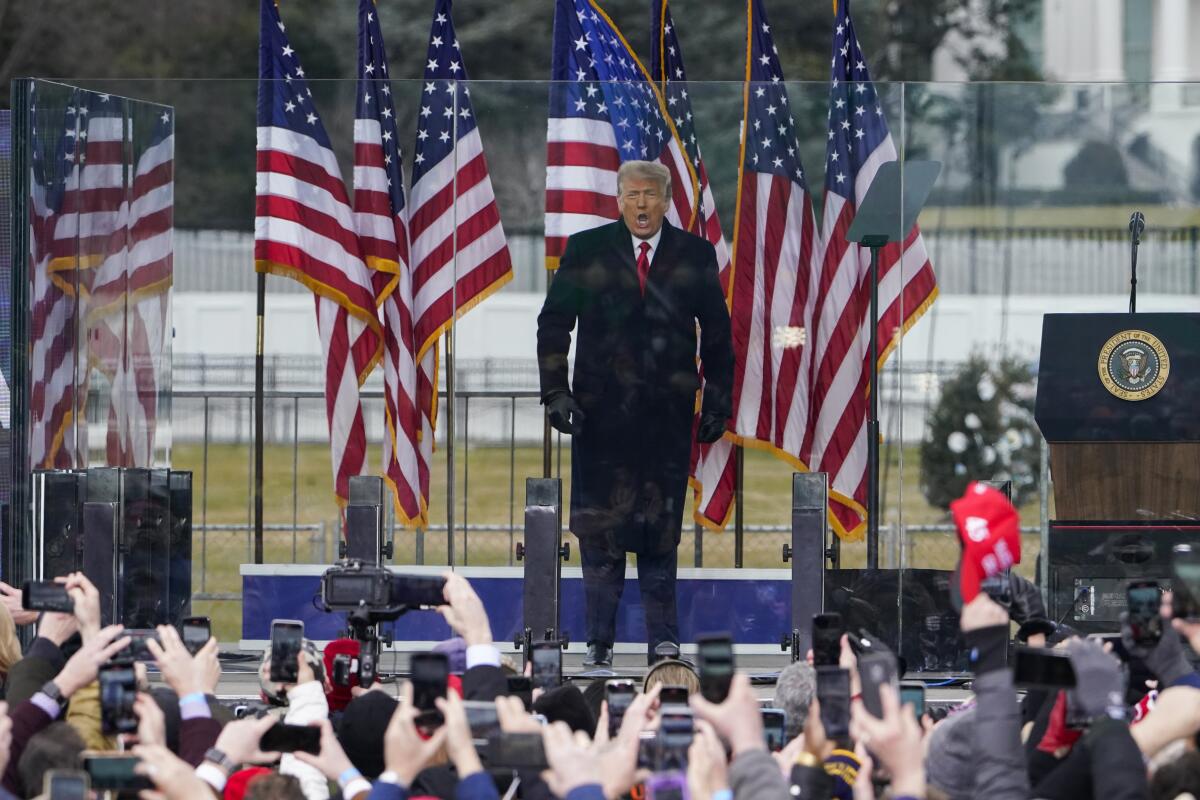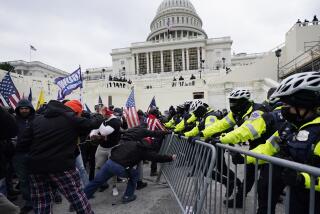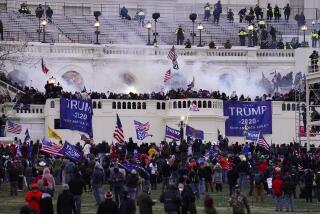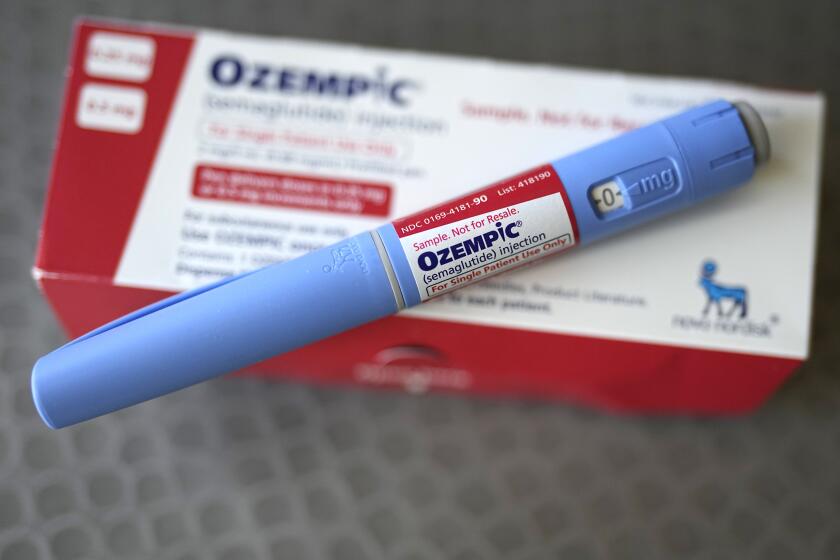The crime Trump committed in stirring up his mob

- Share via
For years, Donald Trump has been going right up to the line of inciting violence by targeting certain minority groups and individuals with his vitriol. I have argued previously that his speech did not constitute incitement.
On Wednesday, Trump crossed the Rubicon and incited a mob to attack the U.S. Capitol as Congress was in the process of tallying the electoral college vote results. He should be criminally indicted for inciting insurrection against our democracy.
The 1st Amendment protects legitimate political debate, including speech we may find repugnant, but it does not protect speech that incites a crowd to imminent lawless action.
Incitement law requires the presence of three elements. First, the speaker must directly advocate a crime. Trump summoned the crowd to the “Save America” rally in Washington with the words “Be there. Will be wild!” In his speech Wednesday, Trump encouraged those in attendance to march to the Capitol and “fight,” which constituted an explicit call to a lawless act.
There were a number of revealing characteristics of Trump’s speech. Trump said that Republicans had been too nice, like a boxer with his hands tied behind his back, which was understood by the audience that rougher tactics were needed. He said the crowd should fight “bad people” and added, “You’ll never take back our country with weakness. You have to show strength, and you have to be strong.”
A court can also learn about Trump’s intentions by paying attention to what members of his entourage said at the same rally. Rudolph W. Giuliani urged “trial by combat” and Donald Trump Jr. warned Republican legislators, “We’re coming for you.”
Second, the crime being incited must be imminent, that is, about to happen. This element was fulfilled because Trump indicated that the crowd should march straightaway to the Capitol building, which they did immediately after his speech.
Finally, it must be quite likely that the crime being incited occur, and this requires an evaluation of the context of the speech. In this case, Trump is the idolized leader of a group of followers who have shown him extraordinary loyalty. Thus, his instructions and commands are very likely to be obeyed by his supporters. One Trump supporter said after invading the Capitol building, “Our president wants us here” and “We wait and take orders from our president.” Trump said several times that he would march to the Capitol with them, although he returned to the White House to watch events on television.
The emotional state of the crowd also matters. Trump has been disseminating disinformation and whipping up resentment against a “stolen election” for over two months. That violence and pillage ensued after his speech, including the tragic loss of life, was eminently foreseeable.
Incitement is an inchoate crime, which means that the speech act is the crime itself and no bad consequences need ensue. However, injurious consequences did follow from Trump’s exhortations and this fact helps prosecutors build a case for conviction in court.
Prosecutors could plausibly argue that had Trump not encouraged the unruly mob to march to the Capitol and “fight,” the criminal acts would likely have not occurred. The evidence strongly suggests that his words were causally connected to the subsequent harms, and this could satisfy the criminal law’s test of causation.
Trump could be indicted by the U.S. attorney’s office for the District of Columbia. Michael Sherwin, the acting head of that office, has confirmed that his office will pursue charges wherever the evidence leads them and that he has not taken indicting Trump off the table.
It remains an open question whether a sitting president can be indicted for a crime. But it is clear that Trump could be indicted for crimes committed during his time as president after he leaves office Jan. 20.
Even if the case against Trump were to fail, it is crucial that our system of law enforcement send the unambiguous message to Trump and his followers in the final days of his presidency that further incitement of violence and sedition will result in severe consequences.
I have studied war crimes tribunals for three decades and we must acknowledge the end of American exceptionalism and learn from the history of societies that lurch from civil unrest into full-blown civil war. A failure to respond to incitement of insurrection will only embolden those who wish to destroy our democratic system.
The law of incitement was designed to protect the public from exactly this kind of politics of violence. Prosecutors should not be reluctant to apply it to anyone — including a president — who has crossed this line.
Richard Ashby Wilson is associate dean of University of Connecticut School of Law and the author of “Incitement on Trial.” @richardawilson7
More to Read
A cure for the common opinion
Get thought-provoking perspectives with our weekly newsletter.
You may occasionally receive promotional content from the Los Angeles Times.









